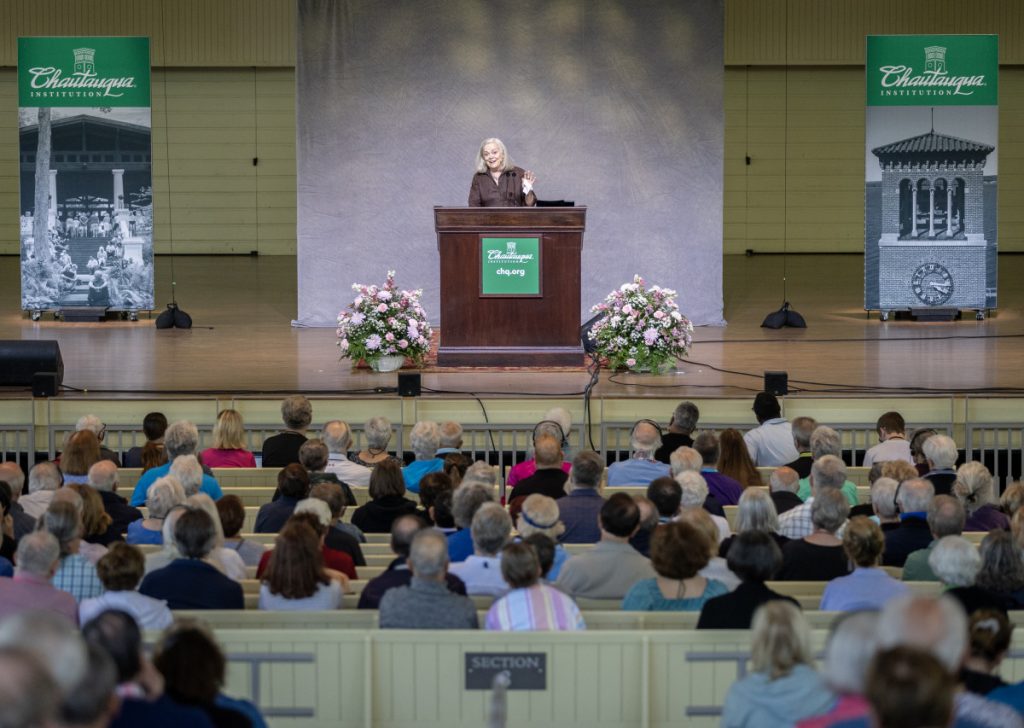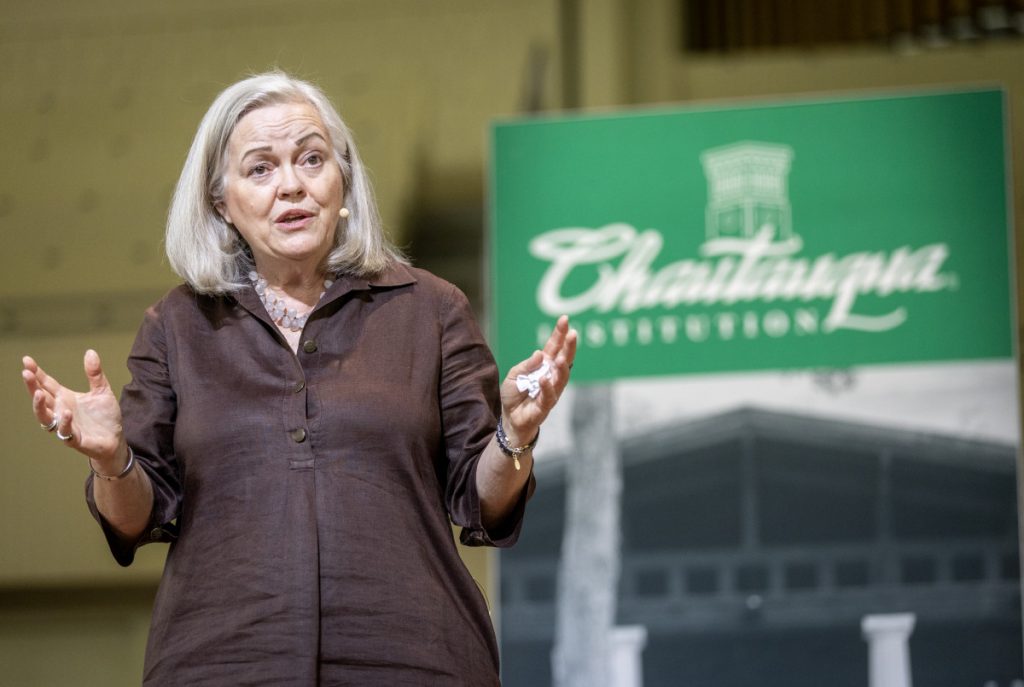
Alton Northup
Staff writer
After former Ambassador Deborah K. Jones evacuated her mission in wartorn Tripoli, Libya, without notice to her foreign counterpart, the Libyan Foreign Minister reproached her for caring more about the safety of her staff than solving the country’s conflict; from his perspective, “the USA was large enough to be more generous than that, even to the point of risking its own personnel.”
Diplomats find themselves in a complicated balance of advocating for their state’s goals while understanding the needs of their geopolitical counterparts. As Jones puts it, “diplomacy is finding space in the same words for agreements.” She shared her thoughts on this balance in her lecture, “The Role of Friendship in Diplomacy,” at 10:45 a.m. Thursday in the Amphitheater, for the fourth day of the Chautauqua Lecture Series Week One Theme, “On Friendship.”
To prepare for her lecture, Jones asked her former colleagues to share examples of when friendship facilitated diplomatic solutions. The majority of them said it had no place in international relations and that “so-called friendships” can lead to unrealistic expectations that never stand a chance.
She was surprised by their answers; she felt instead of defining what friendship means, she needed to define what diplomacy means.
Jones traces modern diplomacy to the 1648 Treaty of Westphalia, commonly known as the Peace of Westphalia, that ended the Thirty Years’ War. The treaty established nation-states, not dynasties; and institutions for disagreements, not anarchy. For nearly 400 years, this system has endured, she argued, because of diplomats.
If you have traveled abroad, purchased clothing manufactured in another country or engaged in business with a foreign government, then you have benefited from diplomacy. Diplomats maintain the negotiations, upkeep and oversight that makes international cooperation possible. And it is this maintenance, Jones said, that “is the highest manifestation of civilization.”
Another role of ambassadors, however, is to be a tool of the state.
“‘We have no eternal allies, and we have no perpetual enemies. Our interests are eternal and perpetual, and those interests it is our duty to follow,’” she said, quoting 19th-century British Prime Minister Lord Palmerston.
Throughout their duty, diplomats may be tempted to impress or form bonds with their foreign counterparts, but loyalty to the Constitution and the interests of the United States come first.
“Those who succumb to the siren song, and forget that they are simply an instrument of the American taxpayer,” Jones said, “do so at their own peril.”
The United States does, however, form long-standing relationships with nations. And while the U.S. often forgets the help it has received from other countries, she said, maintaining cordial relationships allows governments to know each other better.

Within diplomatic cohorts, it becomes easier to understand each other’s red lines while acknowledging the other’s concerns. They can be honest about their needs without offending each other.
“It is being willing to acknowledge the essential dignity of the other person, or party, and sometimes, it is to accept what is perfectly honest, or truthful, if not necessarily completely truthful,” Jones said. “The opposite of conflict is not necessarily complete peace, it is process,”
So is there a role for friendship in diplomacy? Sort of.
Jones certainly has foreign friends, and establishing relationships of trust did aid in negotiations during her career. But the foundation of friendship does not translate well to diplomacy.
“All friendships are characterized by mutual respect, trust, confidence, reciprocal disclosure and loyalty,” she said. “Many of the qualities that go into creating successful diplomacy also go into creating successful friendships, but that loyalty piece is missing unless it is to a government.”
“I do try to conduct myself diplomatically,” she wryly concluded, “except with my very, very close friends.”




